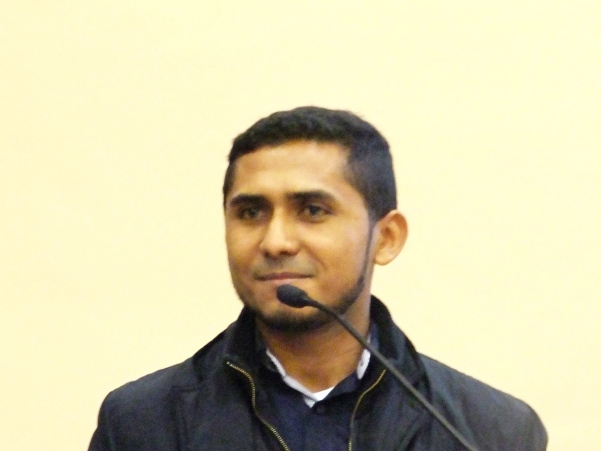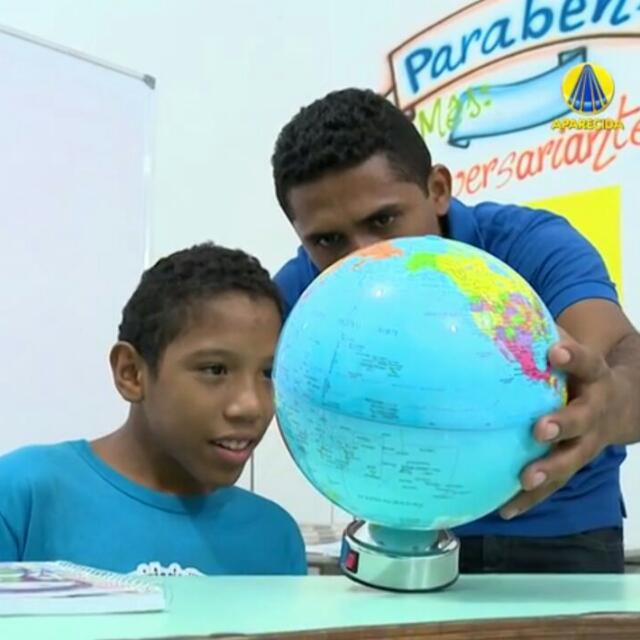 Brazil is a land of contradictions, the emblem of joy, hospitality, folklore, music, pristine nature, beaches, luxorious forests and metropolises oon the one hand. But on the other, like many countries in the world, Brazil is a land of contrasts, criminality and social inequality. Drug traffiking in the city represents a real wound on society that inevitably leads to armed conflicts. In addition, the murder rate among women is high, prostitution, lack of health care, child labour, low level of education, and the spread of slave labour generates high levels of inenquality as in the favellas and in the outlying districts of big cities. Health care and education are not garunteed and young people can’t look forward to an education and a job. Few escape the clutches of cime, thanks mostly to a few public policies and the work of social aid organizations such as parishes and Christian church groups that are really the only ones who have the fate of the poor at heart. Even in my own city with its 800,000 citizens, children between the ages of 13 and 17 have been mudered because of their involvement with drugs. My desire to love my neighbor, to give myself especially to the people that have been rejected by society, led me to be involved for five years, in the spirit of the Focolare, with a social project years in the diocese of Teresina: “The New Youth Community Centre.”
Brazil is a land of contradictions, the emblem of joy, hospitality, folklore, music, pristine nature, beaches, luxorious forests and metropolises oon the one hand. But on the other, like many countries in the world, Brazil is a land of contrasts, criminality and social inequality. Drug traffiking in the city represents a real wound on society that inevitably leads to armed conflicts. In addition, the murder rate among women is high, prostitution, lack of health care, child labour, low level of education, and the spread of slave labour generates high levels of inenquality as in the favellas and in the outlying districts of big cities. Health care and education are not garunteed and young people can’t look forward to an education and a job. Few escape the clutches of cime, thanks mostly to a few public policies and the work of social aid organizations such as parishes and Christian church groups that are really the only ones who have the fate of the poor at heart. Even in my own city with its 800,000 citizens, children between the ages of 13 and 17 have been mudered because of their involvement with drugs. My desire to love my neighbor, to give myself especially to the people that have been rejected by society, led me to be involved for five years, in the spirit of the Focolare, with a social project years in the diocese of Teresina: “The New Youth Community Centre.”  The project, which is geared towards at-risk children and teenagers, tries to provide alternative opportunities. Eighty children and teenagers (betweeen the ages of 5 and 17) attend music, dance and theatre classes. They receive tutoring and are provided with hot meals, since they often don’t find food in their homes. Their lives change when they come into contact with people who welcome and care for them. I also tried to be involved, listening to many young people who have shared their suffering with me. One boy told me about his drug problem and asked me to help him out of the tunnel. Another told me how he steals in order to get money. We often involve the professionals who work there, such as psychologists and social workers. Now many of the children are grown, they study and have found honest work. Others continue to arrive in search of an opportunity at a better life, of being loved and cared for. One of them who had been abandoned by his father, called me “Dad” and so I took on this role One boy had suffered various forms of violence and neglect. We found a way to channel his energy, by introducing him to judo, and that changed him for the better. He became a source of pride for all of us who had helped him. But one day he didn’t show up at the centre. We learned that he had become involved in some ugly ways and, one day, as he sat in front of his house was murdered. He had just turned 15. It was a big suffering for all of us, also for me because of the friendship we had built. Many other teenagers suffer the same fate. The project foresees also moments of training for educators and young people, according to the Chiara Lubich‘s spirituality, with monthly meetings of the Word of Life. What I got out of this experience is that continuity is required for recovering these boys, working in synchrony with the State, public institutions of education and health, with civil society, and with the church. To win this challenge we need to create networks and dialogue at every level: personal, group, community, all the way to the highest levels of society. But it all begins with me, moving beyond myself and going out to encounter the many peripheries. We’ve already begun.
The project, which is geared towards at-risk children and teenagers, tries to provide alternative opportunities. Eighty children and teenagers (betweeen the ages of 5 and 17) attend music, dance and theatre classes. They receive tutoring and are provided with hot meals, since they often don’t find food in their homes. Their lives change when they come into contact with people who welcome and care for them. I also tried to be involved, listening to many young people who have shared their suffering with me. One boy told me about his drug problem and asked me to help him out of the tunnel. Another told me how he steals in order to get money. We often involve the professionals who work there, such as psychologists and social workers. Now many of the children are grown, they study and have found honest work. Others continue to arrive in search of an opportunity at a better life, of being loved and cared for. One of them who had been abandoned by his father, called me “Dad” and so I took on this role One boy had suffered various forms of violence and neglect. We found a way to channel his energy, by introducing him to judo, and that changed him for the better. He became a source of pride for all of us who had helped him. But one day he didn’t show up at the centre. We learned that he had become involved in some ugly ways and, one day, as he sat in front of his house was murdered. He had just turned 15. It was a big suffering for all of us, also for me because of the friendship we had built. Many other teenagers suffer the same fate. The project foresees also moments of training for educators and young people, according to the Chiara Lubich‘s spirituality, with monthly meetings of the Word of Life. What I got out of this experience is that continuity is required for recovering these boys, working in synchrony with the State, public institutions of education and health, with civil society, and with the church. To win this challenge we need to create networks and dialogue at every level: personal, group, community, all the way to the highest levels of society. But it all begins with me, moving beyond myself and going out to encounter the many peripheries. We’ve already begun.
Thank God for his gifts
Thank God for his gifts




0 Comments